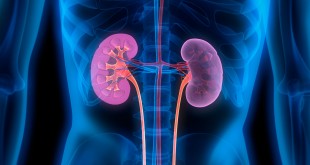- What are the chances of pregnancy in women with a kidney transplant?
After a successful kidney transplant, a woman’s ability to become pregnant will usually return to normal. She has better general health compared to a woman on dialysis.
It is easier for a woman with a kidney transplant to get pregnant and have a child than a woman on dialysis.
If a woman does not plan to have a child, she needs to practice birth control.
- Is pregnancy advisable for kidney transplant recipients?
A major concern for kidney transplant recipients is whether the pregnancy will worsen kidney function and damages the transplanted kidney.
Pregnancy in kidney transplant recipients must be planned. A woman who is considering pregnancy must discuss any possible risks with her nephrologist (kidney doctor) before considering pregnancy. She should be seen at a pre-pregnancy counseling clinic. The nephrologist may also review her list of medications prior to conception to be sure that these medications will not harm the unborn child. Some medications may be stopped or replaced by others.
In carefully selected kidney transplant recipients, pregnancy usually has no effect on kidney function.
Pregnancy can be considered if the following criteria are met :
- Good general health for at least one year after a kidney transplant. Some sources recommend waiting for at least 2 years after a kidney transplant. This allows for a reasonable amount of time to make certain that the transplanted organ is healthy and functioning well
- Good stable kidney function, (preferably serum Creatinine < 133 umol/L)
- No evidence of kidney rejection
- Normal blood pressure or minimal anti-hypertensive medications
- No, or minimal protein in urine
In some cases, pregnancy is not recommended at all because of risk to the mother’s life or possible permanent loss of the kidney transplant.
- What are the possible complications during pregnancy?
- Hypertension (high blood pressure)
- Urinary tract infections
- Reactivation of silent infections such as cytomegalovirus and toxoplasmosis
Acute rejection episodes are not greater than expected for non-pregnant recipients but may occur post-delivery.
- What are the risks for babies born to kidney transplant patients?
Prematurity and its associated complications remain the main problem in babies born to kidney transplant recipients. The severity of this risk depends on maternal kidney function and blood pressure control.
- Can medications taken by a kidney transplant woman harm an unborn child?
Specific medications are taken by a kidney transplant patient to avoid problem of rejection of the transplanted kidney. The amount of anti-rejection medicines is important to a transplant patient. In the early period after a kidney transplant, the patients are on higher doses of these medicines. Gradually, the dose of these medications is reduced to maintenance levels.
Some of these medications have definite risks for babies. Commonly used anti-rejection medications at maintenance dose have not been associated with increased risk of birth defects in the newborn compared to general population,
 Some anti-rejection medications need to be stopped before conception Some anti-rejection medications need to be stopped before conception |
As mentioned above, it is very important that pregnancies are planned so that the nephrologist can review their anti-rejection medication prior to conception.
Some medications will have to be adjusted or even changed completely to avoid hurting the unborn child. Certain potential harmful medications need to be stopped for a while before conception to ensure that the drug is completely cleared.
The dosage of some anti-rejection medications is affected by pregnancy. More precautions will have to be taken throughout pregnancy and after delivery as the dose of medications needs to be adjusted. The patient will need to be in constant contact with the transplant team.
- Do all kidney transplant patient need a Caesarean section to deliver her baby?
No. Caesarian section is necessary for obstetric reasons only.
| Last Reviewed | : | 12 September 2013 |
| Writer | : | Dr. Liew Yew Fong |
| Accreditor | : | Dr. Sharmini Diana a/p Parampalan |
 PENDIDIKAN PESAKIT Kementerian Kesihatan Malaysia
PENDIDIKAN PESAKIT Kementerian Kesihatan Malaysia

